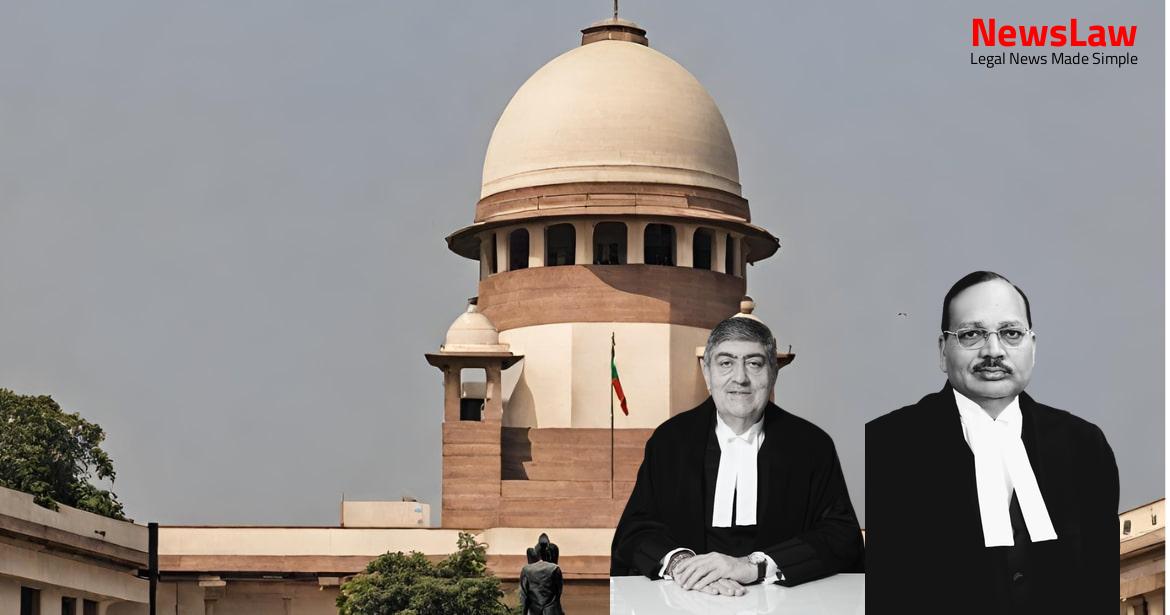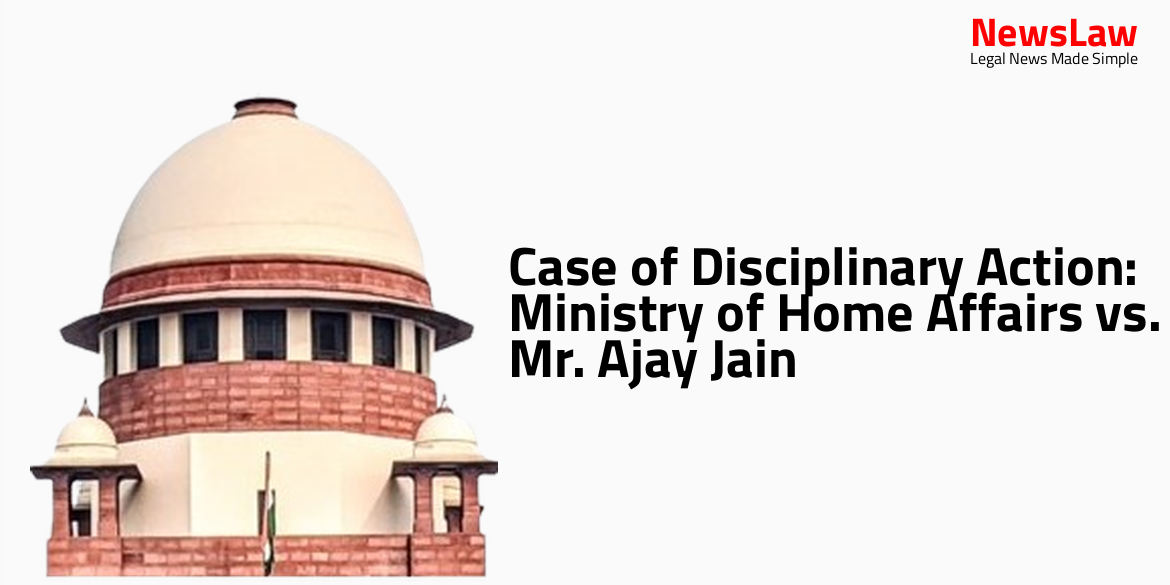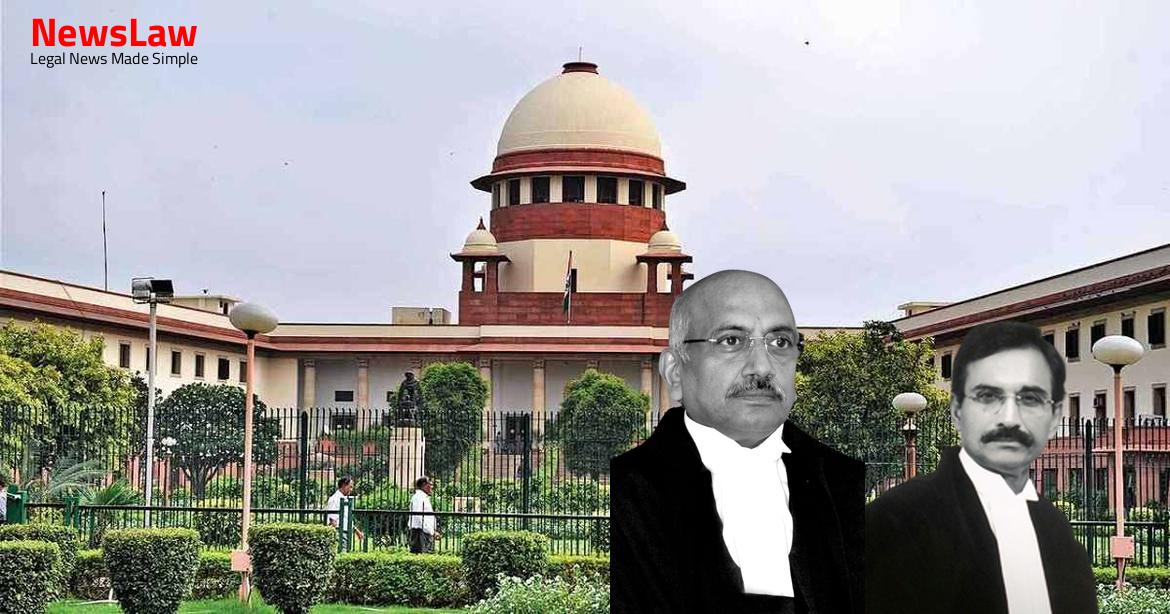Explore the significant Supreme Court judgment in the case of Kumari Madhuri Patil & Anr. v. Additional Commissioner, Tribal Development & Ors, where the guidelines for Caste Scrutiny Committees were challenged. This landmark judgment addresses the constitutional validity of the guidelines, ensuring justice and legal compliance. Stay informed on this crucial legal matter.
Facts
- The freedom at midnight was followed by the framing of the Indian Constitution.
Also Read: Supreme Court Judgment on Single Till Mechanism for HRAB Calculation: A Comprehensive Analysis
Arguments
- The petitioner in the Kumari Madhuri Patil case challenged the constitutional validity of the guidelines.
- The challenge was referred to the Constitution Bench.
- The guidelines were upheld in the Dayaram v. Sudhir Batham & Ors case.
- The case of Kumari Madhuri Patil & Anr. v. Additional Commissioner, Tribal Development & Ors highlighted this problem.
- The facts in the Kumari Madhuri Patil case itself serve as an illustration of the issue.
- Appellant and her sister claimed Caste Certificates based on their father’s certificate as ‘Hindu Koli’ caste.
- Investigation revealed the caste claims were incorrect.
- Caste certificates issued to the appellant and her sister were cancelled.
Analysis
- The judgment of Kumari Madhuri Patil case at Pune established six Caste Scrutiny Committees for SCs, Denotified Tribes, and Nomadic Tribes
- The Constitution of India provides special benefits for Scheduled Castes (SCs) and Scheduled Tribes (STs) due to social and economic conditions
- Provisions under Article 15 and Article 16 of the Constitution prohibit discrimination and enable reservation for SCs and STs
- Judicial activism fills the legislative vacuum to protect the rights of citizens as seen in Bandhua Mukti Morcha v. Union of India case
- Article 32, Article 142, and Article 141 of the Constitution empower the Supreme Court to issue directions with legal effect
- The State is mandated to provide opportunities and facilities to SCs and STs for education and employment as per the Constitution
- The Supreme Court in Kumari Madhuri Patil case clarified that its directions do not substitute legislative functions but bridge gaps until proper laws are enacted
- Penal consequences are mentioned for violating provisions aimed at protecting the benefits reserved for SCs and STs
- The focus is on preventing false claims to ensure socio-economic justice as per Constitutional objectives
- A uniform legislation with guidelines and rules is recommended by the Supreme Court to address issues in tribal welfare
- The need for multiple Scheduled Tribe/Caste Scrutiny Committees with broader membership to address challenges in implementation is underscored
- Three kinds of writ petitions filed before the High Court regarding verification of certificates by the Vigilance Cell and the constitution of the Committee.
- The judgment in Kumari Madhuri Patil case necessitated directions to streamline the procedure for issuance of social status certificates.
- Rules and legislation guidelines for vigilance and scrutiny committees detailed, with emphasis on verification and issuance of caste certificates.
- Challenges faced due to lack of proper verification leading to issuance of caste certificates quickly.
- Enactment of Maharashtra Scheduled Castes, Scheduled Tribes, De-notified Tribes Rules in 2012 to address these issues and bring in the Vigilance Cell mechanism.
- Importance of the proper verification of caste certificates, especially the use of Vigilance Cell for thorough investigation.
- Mandate for fresh verification exercise for validity certificates backed by the Vigilance Cell report in case of doubts.
- The Government of Maharashtra decided to change the Chairman of the Caste Scrutiny Committee to the District Collector or Additional District Collector (IAS).
- The decision aimed to handle the large number of candidates seeking caste certificates for contesting elections in local authorities.
- Thirty-five district-level committees were constituted to verify caste certificates of candidates.
- The Scrutiny Committees are defined as committees for Scheduled Castes, Scheduled Tribes, Denotified Tribes, Nomadic Tribes, Other Backward Classes, or Special Backward Category for verification of Caste Certificates.
- The Scrutiny Committees are responsible for verifying Caste Certificates for appointments in various government and public sector roles.
- The Scrutiny Committees are required to follow a set procedure for verification and adhere to time limits as prescribed.
- The impugned order required the recovery and destruction of all original certificates issued by the Scrutiny Committees under a specific Government Resolution.
- The judgment set aside the impugned order, directing only re-verification of the certificates to ensure legal compliance due to doubts cast over them.
- The re-verification is deemed sufficient and necessary for complete justice among the parties involved, under the authority of Article 142 of the Constitution.
- The practicality of having all affected parties before the court is deemed impractical, hence representative groups are accepted for the proceedings.
- The State of Maharashtra raised concerns about the directions affecting parties not present, emphasizing the need to notify individuals when issuing new certificates.
Also Read: Selection and Appointment of Judicial Officers in Himachal Pradesh
Decision
- Caste Scrutiny Committee to carry out exercise of issuing certificates to entitled persons
- Parties concerned to be notified through public notices
- Parties to bear their own costs
- Objective of the Act of 2000 is to issue certificates only to entitled persons
- Proper exercise to be conducted with assistance from the Vigilance Cell
- Hope that the exercise will weed out non-entitled persons and benefit only entitled persons
Case Title: DIST.COLLECTOR SATARA Vs. MANGESH NIVRUTTI KASHID
Case Number: C.A. No.-002723-002723 / 2015



